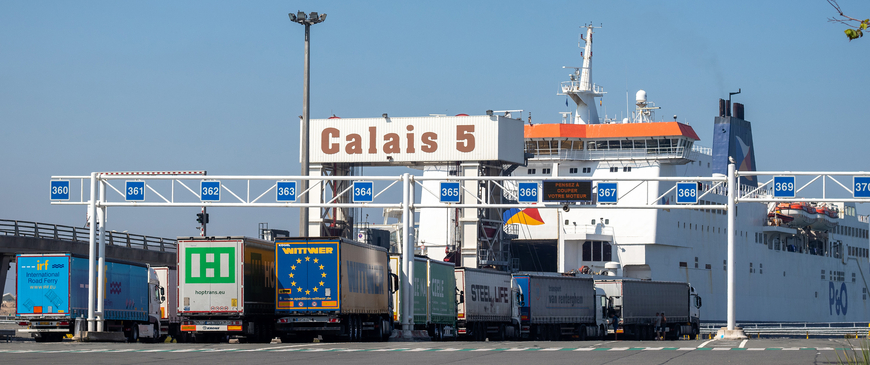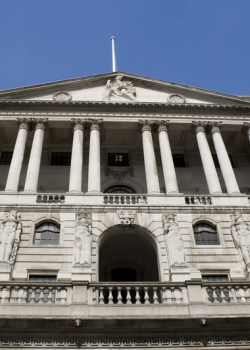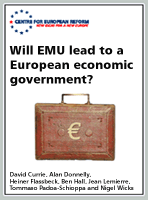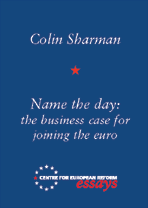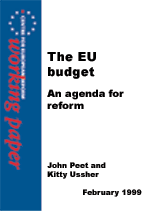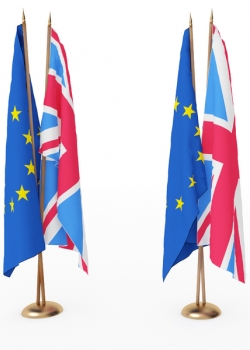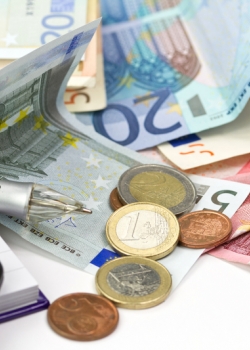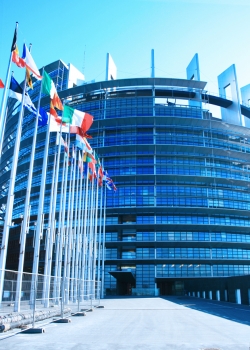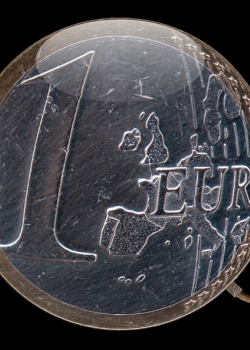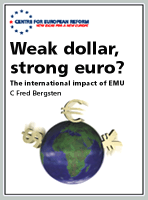Single market, competition & trade
A mandate for convergence
01 June 1999
The government is missing a trick by failing to encourage the Bank of England to play an active part in ensuring Britain's economic convergence with the euro-zone.
The prime minister has repeatedly said joining EMU requires the UK's "sustainable convergence with the economies of the single currency". This doesn't mean exchange-rate...
The prime minister has repeatedly said joining EMU requires the UK's "sustainable convergence with the economies of the single currency". This doesn't mean exchange-rate...
Will EMU lead to a European economic government?
07 May 1999
Both proponents and opponents of economic and monetary union (EMU) have always viewed it as an engine of further European integration and as another milestone on the road to an ill-defined 'political union'.
Name the day: The business case for joining the euro
02 April 1999
Tony Blair's presentation to the House of Commons of a national changeover plan for the adoption of the euro, last February, will come to be seen as a defining moment in Britain's path towards economic and monetary union (EMU).
Europe's wake up call
01 April 1999
"We've made it!" That was the predominant feeling among leading continental politicians and officials in the weeks after January 1st. The many merchants of doom had been proven wrong.
The danger of centralisation
01 April 1999
During Oskar Lafontaine's brief reign as German finance minister, Europe seemed to veer towards much greater centralisation of economic policy-making. He argued that governments needed to forge a more centralised system of economic policy-making.
Issue 5 - 1999
26 March 1999
- Europe's emerging political union, Charles Grant
- The danger of centralisation, Ben Hall
- Europe's wake up call, Steven Everts
Europe's uncertain identity
05 February 1999
The launch of the euro is a success of historic proportions. It is also the ultimate vindication of the method first sketched out nearly fifty years ago in the Schuman memorandum.
The EU budget: An agenda for reform
05 February 1999
The nastiest arguments in the European Union, as in any family, are the ones about money. Communautaire sentiment soon evaporates when prime ministers start to haggle over the budget.
Give on the rebate to gain elsewhere
01 February 1999
At their special summit in March, EU leaders are due to settle the Union's finances for the next seven years. The British government is adamant: the budget rebate won by Mrs Thatcher in 1984 is not up for negotiation.
Vision please
01 February 1999
This year will be crucial both for the development of the European Union and for Britain's position within it. Outside EMU, Britain cannot be one of the leading players. It will have to run to keep up. That means that the government must actively engage in a public debate about Europe's future.
Issue 4 - 1999
29 January 1999
- Give on the rebate to gain elsewhere, Kitty Ussher
- Vision please, Ben Hall
- The end of EADC, Charles Grant, Alexandra Ashbourne
- The myth of tax harmonisation, Kitty Ussher
EMU must go further
01 December 1998
The EMU project is set for success in the short term, despite the financial crisis, but in the long run its prosperity depends on greater co-ordination between member states to undertake essential structural reform.
Issue 9 - 1999
27 November 1998
- The treaties need radical reform, Charles Grant
- Pooling forces, Tim Garden, John Roper
- Transatlantic tensions, Charles Grant
- Europe's new economy, Charles Leadbeater, Kitty Ussher
Issue 3 - 1998
27 November 1998
- What next for Russia?, Rodric Braithwaite
- A new model of European integration, Ben Hall
- EMU must go further, Kitty Ussher
- Reshaping Europe's defence, Charles Grant
Transparency is no panacea?
01 October 1998
We all want openness and accountability, but let's be clear that they don't guarantee the most effective method of Government. Several of the objectives we set for the European Union - an efficient single market; a single currency which commands public confidence and proves a reliable store of value; a...
Will EMU lead to political union?
01 October 1998
In the recent history of Europe, from Jean Monnet's plan for a European Coal and Steel Community in1950 to today's European Union, one pattern seems clear: where economic integration leads, political integration will eventually follow.
EMU, it is argued, will continue this trend-except on a far bigger scale. The euro will...
EMU, it is argued, will continue this trend-except on a far bigger scale. The euro will...
Issue 2 - 1998
25 September 1998
- A new model of European integration, Ben Hall
- Elect the Commission, Charles Grant
- Transparency is no panacea?, Maurice Fraser
- Will EMU lead to political union?, Ed Smith
The unshocking truth about EMU
01 July 1998
It is the commonest of all the economic arguments against EMU, but also the most specious: that any country in the euro-zone which suffered an economic crisis that did not affect its neighbours (an "asymmetric shock"), deprived of the freedom to devalue, would be condemned to a massive rise in unemployment.
Issue 1 - 1998
29 May 1998
- The unshocking truth about EMU, Charles Grant
- Trouble in the Med, Dan Bilefsky
- Integration or isolation? Restructuring Europe's defence industry, Alex Ashbourne
Weak dollar strong euro? The international impact of EMU
01 May 1998
The creation of the euro will be the most important development in the evolution of the international monetary system since the widespread adoption of flexible exchange rates in the early 1970s.




